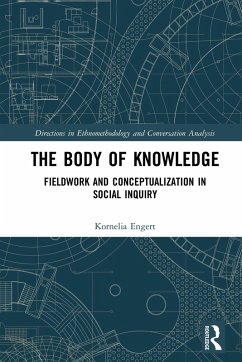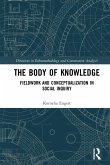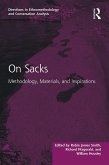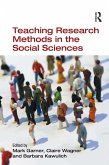In a departure from ethnographic studies of research that focus on the physical sciences, the author uses the example of sociological research to shed new light on the role of self and mind for epistemic cultures, on the elusive materiality of conceptual objects, and on researchers' experiential ways of seizing, reviewing, and accrediting knowledge.
A rich and pervasive study of elementary sites in the research process, The Body of Knowledge will appeal to scholars of sociology, anthropology, and the humanities with interests in the epistemic practice of their own discipline, as well as those working in fields such as the social study of science, ethnomethodology and conversation analysis, and the sociology of interaction.
Dieser Download kann aus rechtlichen Gründen nur mit Rechnungsadresse in A, B, BG, CY, CZ, D, DK, EW, E, FIN, F, GR, HR, H, IRL, I, LT, L, LR, M, NL, PL, P, R, S, SLO, SK ausgeliefert werden.
'I find this an innovative, empirically wide-ranging, and conceptually rich and developed work (...), commensurate with its broad, discipline-transcending interest and potential impact. Although all kinds of textbooks, books of advice, and essayistic renderings of various aspects of the research process exist - more in the humanities than in sociology - none display the same level of detail, observational perceptiveness, and theoretical sensitivity to the research process and its various components as this one (...). The chapter on writing in particular comes close to a conversation analysis study of the "succession" of the writing process and its many aspects, including that of generating ideas while writing and of dissociating oneself from the text and then re-appropriating it as an interaction party - as a communicative other.' - Karin Knorr Cetina, The University of Chicago, USA
'...an ethnomethodological account of an oft-overlooked set of related practices common to social research. There will, undoubtedly, be readers interested in the sociality of research methods who will find this book a vital contribution.' - Phil Brooker, Symbolic Interaction









